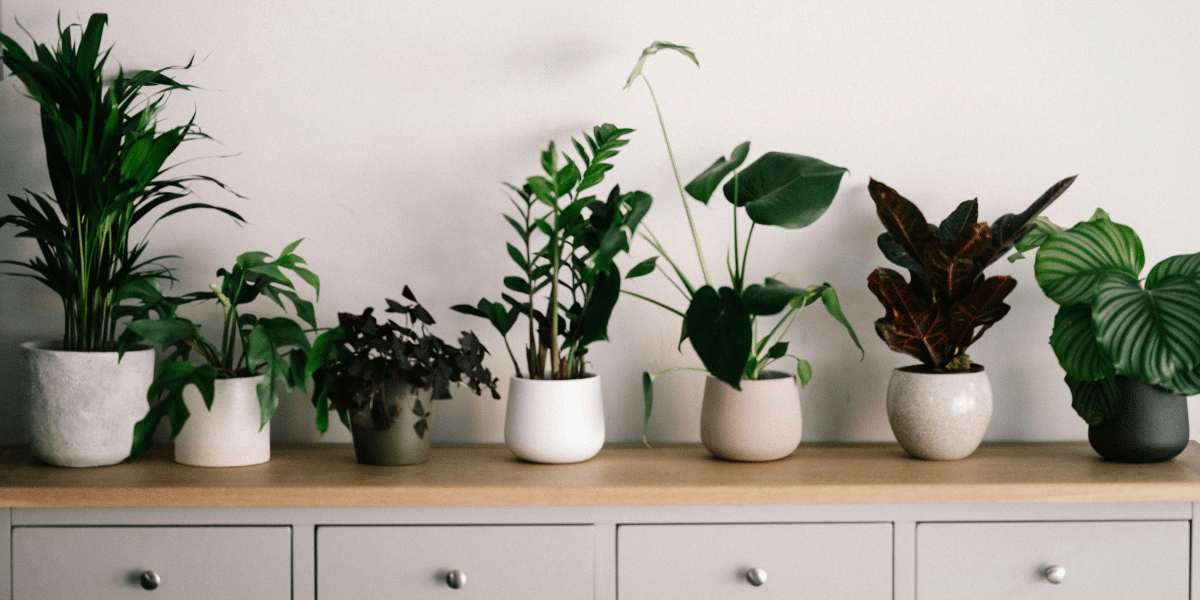In recent years, the popularity of houseplants has surged, turning once mundane living spaces into verdant indoor jungles. This trend is more than just an aesthetic choice; it’s a testament to the profound benefits that plants can offer to mental health. While they certainly add a touch of nature’s beauty to any room, the advantages of having houseplants extend far beyond mere decoration.
A Breath of Fresh Air: Enhancing Indoor Air Quality
One of the immediate benefits of having houseplants is their ability to improve indoor air quality. Plants act as natural air purifiers, absorbing carbon dioxide and releasing oxygen through photosynthesis. Additionally, many houseplants can filter out common volatile organic compounds (VOCs) found in household products, reducing the risk of indoor air pollution. Cleaner air can lead to better respiratory health and, consequently, improved mental clarity and overall well-being.
Moreover, certain plants, such as the snake plant and peace lily, are particularly effective at removing toxins like benzene, formaldehyde, and trichloroethylene from the air. This natural purification process helps create a healthier indoor environment, which can reduce stress levels and promote a sense of calm. For college students and professionals alike, who often spend long hours indoors, having a few strategically placed plants can make a significant difference in maintaining a healthy and stress-free workspace.
The Therapeutic Power of Plant Care
Caring for houseplants offers a unique form of therapy that combines mindfulness and nurturing. Engaging in plant care, such as learning to propagate succulents in water, can be a therapeutic activity that contributes to better mental well-being. This simple act of tending to a plant can provide a sense of purpose and accomplishment, which are crucial elements for mental health.
The routine of watering, pruning, and observing the growth of plants encourages mindfulness, allowing individuals to focus on the present moment and reduce anxiety. For those dealing with depression or high levels of stress, plant care can serve as a grounding activity, providing a break from the constant rush of daily life. Furthermore, the tactile interaction with soil and plants has been shown to boost mood and lower stress hormones, making it an effective, natural way to enhance emotional health.
Aesthetic and Psychological Benefits
Beyond the tangible health benefits, houseplants can also significantly improve the aesthetic appeal of a living space, which in turn, positively impacts mental health. A well-placed plant can transform a dull room into a lively, welcoming space. The presence of greenery can create a soothing atmosphere, which is especially beneficial in urban environments where natural scenery is limited.
Research has shown that exposure to nature, even in the form of houseplants, can reduce mental fatigue and improve concentration. This is particularly relevant for students and remote workers who may find their attention waning over long periods of study or work. By incorporating plants into their environment, they can create a more stimulating and refreshing workspace. Additionally, the act of arranging and decorating with plants can be a creative outlet, providing an opportunity for self-expression and personal satisfaction.
Incorporating houseplants into living and working spaces is a simple yet powerful way to enhance mental health. From improving air quality to offering therapeutic care routines and boosting aesthetic appeal, plants provide a multitude of benefits that can lead to a happier, healthier life. As more people discover these advantages, the trend of keeping houseplants is likely to continue growing, bringing the healing power of nature into more homes and workplaces.
Published by: Khy Talara








